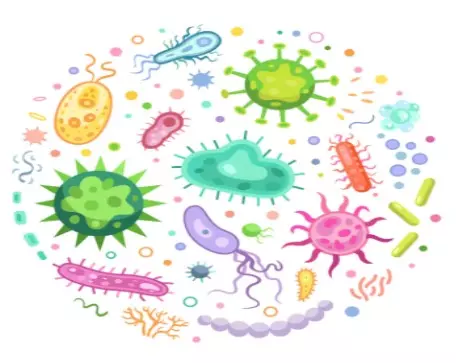
In these days when seasonal changes are experienced, upper respiratory tract diseases have started to be seen frequently. Many people apply to the hospital due to the called "triple epidemic" Kovid-19, flu, and RSV transmitted by the respiratory tract. It is especially dangerous to see the flu and RSV at the same time.
In November, the period that experts call the "viral season" began. In this period, they warn that the three epidemics are starting to emerge together. Experts warn that the virus can enter the body through the eyes, nose, or mouth, and it is stated that three epidemics began to appear together as the winter months approached.
According to international analysis, which is called "the triple epidemic" in the world; Covid-19, influenza and RSV virus are expected to increase very seriously this winter.
-
What Is RSV (Respiratory Syncytial Virus)?
RSV infection is a common ailment in the fall, winter, and spring. However, in 2020 and 2021, during the peak periods of the Kovid-19 pandemic, mask and social distancing measures led to a sharp decrease in flu and RSV cases. For this reason, our immune system has somewhat forgotten about the infections in question.
- RSV is life-threatening in infants, immunocompromised persons, and the elderly by causing respiratory tract infections.
- In most healthy adults infected with RSV, the virus causes symptoms similar to those of a cold or flu. The most common include runny nose, stuffy nose, sore throat, and cough.
- However, wheezing and phlegm cough may mean that the infection has worsened and has spread to the lower respiratory tract, causing bronchiolitis (inflammation of the small airways in the lung) or pneumonia (lung infection).
- Like other respiratory infections, RSV is highly contagious. The airborne virus is spread through sneezing, coughing and kissing.
-
Why Are These Epidemics Increasing?
- After the Omicron variant of the coronavirus made the disease milder, the co-protection measures were relaxed in almost all countries except China. But this brought about an increase in flu and RSV infections, which caught our immune systems off guard.
- It is generally thought that after children return to face-to-face education, they are exposed to these viruses and then infect their families.
- While masks and distancing measures have reduced cases of RSV and flu in previous years, they have likely affected children.
- According to experts, children born just before or during the pandemic had a hard time developing immunity because they were not sufficiently exposed to common viruses like this one.
- Stating that the third danger, besides Covid-19 and RSV, is the flu epidemic called seasonal flu (influenza), experts warn that this epidemic will peak especially in late November and December.
-
Differences Between Influenza And RSV
The key difference between the flu and RSV is the way the symptoms start.
- The flu usually starts with a high fever with aches and pains in the muscles and joints. RSV starts as a cold that causes coughing, rapid breathing and wheezing, sometimes with a fever.
- While RSV is usually severe in children under the age of two, influenza can be severe at any age. There is no runny nose, sneezing and watery eyes in the flu. A dry cough appears.
- But the similarities are much more than the differences
-
What Can We Do About It
Since the way of transmission of RSV is by air and droplet, measures to be taken for this can prevent the transmission of RSV and therefore the development of the disease. What needs to be done in this direction can be summarized as follows:
- The use of masks is very effective to prevent all these viruses. Masks should definitely be used in public transport, especially in public environments.
- Hands should be washed frequently and with plenty of soapy water.
- It is extremely important to cover the mouth and nose when coughing or sneezing.
- Surfaces with intense contact should be disinfected frequently.
- It is said that especially those over 65 years old, pregnant women and people who are in the risk group due to diseases such as diabetes, heart disease, cancer, and immune deficiency, may experience influenza severely, like Covid-19. People in this group should get the flu vaccine before the flu cases increase too much.
- Unlike the flu and Covid-19, unfortunately, there is currently no RSV vaccine. Despite 50 years of research, dozens of RSV vaccine candidates are still in development.
- Vaccines do not protect 100% but minimize symptoms. With the Covid-19 and flu vaccines people will have, the coexistence of three diseases can be prevented and they can overcome the triple epidemic with outpatient treatment.
